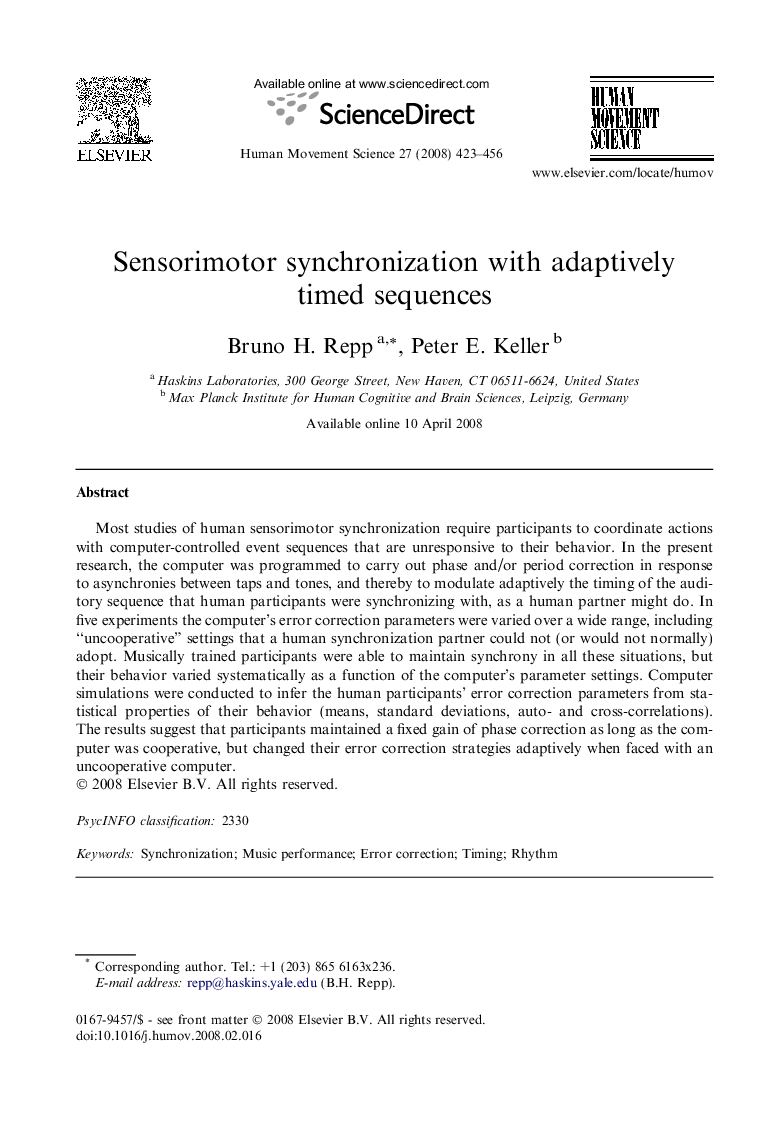| Article ID | Journal | Published Year | Pages | File Type |
|---|---|---|---|---|
| 928960 | Human Movement Science | 2008 | 34 Pages |
Most studies of human sensorimotor synchronization require participants to coordinate actions with computer-controlled event sequences that are unresponsive to their behavior. In the present research, the computer was programmed to carry out phase and/or period correction in response to asynchronies between taps and tones, and thereby to modulate adaptively the timing of the auditory sequence that human participants were synchronizing with, as a human partner might do. In five experiments the computer’s error correction parameters were varied over a wide range, including “uncooperative” settings that a human synchronization partner could not (or would not normally) adopt. Musically trained participants were able to maintain synchrony in all these situations, but their behavior varied systematically as a function of the computer’s parameter settings. Computer simulations were conducted to infer the human participants’ error correction parameters from statistical properties of their behavior (means, standard deviations, auto- and cross-correlations). The results suggest that participants maintained a fixed gain of phase correction as long as the computer was cooperative, but changed their error correction strategies adaptively when faced with an uncooperative computer.
